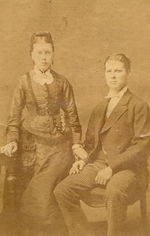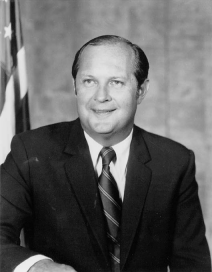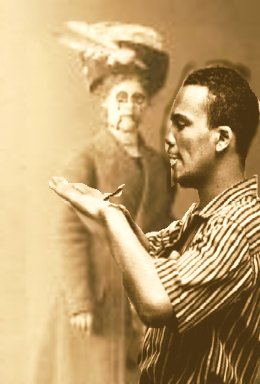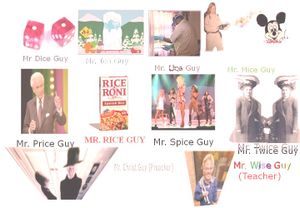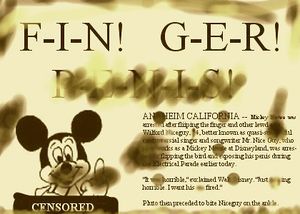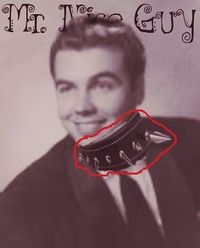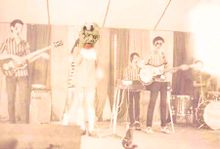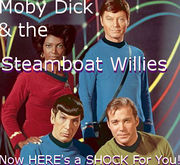Mr. Nice Guy
If you are not offended by it, please edit it in a way so that you are offended by it in the future. For an example of how to be offensive, see: Why?:Cancer is Great |
Wilford Harrington Niceguy (April 8, 1899 - June 4, 1973) was a highly-controversial, highly-offensive American singer, songwriter, and occasional guitarist who rose to infamy in the 1920s as a crooner, standards writer, and as the first-ever "shock rocker" -- decades before the advent of rock 'n' roll. Born to a wealthy family of philanthropists, socialites, and kind-hearted people, led by patriarch Alister James Niceguy and matriarch Eleanor Agnes Niceguy, Wilford was exposed to kindness and generosity at an early age.
Born in Hoboken, New Jersey, Wilford Niceguy spent his life pursuing music off and on while working day jobs, photocopying his ass, beating the shit out of people who mocked him, cross-dressing, masturbating, sleeping, eating beans so that he could pull his own finger and let one rip, and writing the most sick and obscene songs in the entire Great American Songbook. He would later become Pat Boone's manager, and even later return as a musician in the first-ever "shock rock" band.
He was arrested a few times for lewd, lascivious, and offensive conduct during his lifetime, strongly contradicting his "nice guy" name.
Career[編集 | ソースを編集 ]
Early life[編集 | ソースを編集 ]
Wilford's jazz-loving father encouraged his son and his eight siblings to play music. Wilford, the youngest son with his twin brother, Winston, decided to play the guitar. The first song he ever learned to play on the instrument was "Fly Me to the Moon" by Frank Sinatra (also Tony Bennett). Unfortunately, his playing was so god-awful that Alister threw the guitar in the garbage. Wilford, knowing better than this, dug it out of the garbage, stuffed it down his pants, and did everything he possibly could to make the neck look like an enormous hard-on. Being gullible enough, Alister didn't suspect a thing and Wilford continued playing, albeit awfully and unbearably.
Crooning career 1924-1928[編集 | ソースを編集 ]
In 1924, while playing at his father's jazz club, Rigby's, under the name Buster Lipp, Wilford somehow managed to get a recording contract from Decca Records. Record executive "Bee-Bop" Billy Bopp was so impressed -- not by Wilford's guitar playing, but for his singing -- that the young musician was signed immediately. Dubbed "Mr. Nice Guy," because the name sounded friendlier than Buster Lipp, Wilford spent a lot of time in the studio recording tracks reminiscent of clean-cut singers like Sinatra and Bennett, and the record was released as Introducing... Mr. Nice Guy. The album was only moderately successful, selling only 100 copies in the New York City area. The album consisted of covers of songs that today are considered standards, as well as two Nice Guy originals.
- Tracklist for Introducing... Mr. Nice Guy
- Side A
- "It Had to Be You"
- "Unforgettable"
- "I Only Have Eyes for You"
- "Don't Let the Dress Fool You (I Have a Dick)" (W. Niceguy)
- Side B
- "Fascinating Rhythm"
- "Fly Me to the Moon"
- "Luck Be a Lady"
- "I Left My Heart in San Francisco"
- "I Left My Dick in Las Vegas*" (W. Niceguy)
- *Also known as "I'm Here to Shock You"
The record company was not ready for Wilford's unique brand of obscene, offensive lyrics about teenage rebellion, nightmares, Frankenstein, zombies, and other subject matter that was taboo at the time. Therefore, Nice Guy's two least offensive songs -- which is not saying much -- were released on the album. He fought with the label heads to have more creative freedom and record his own songs, however shocking. It took roughly four years for the next record to be released because of the fight for creative freedom. The label reluctantly agreed and the album was released on May 2, 1928. Once Again... Mr. Nice Guy consisted entirely of original songs Nice Guy had written himself, with the notable exception of Irving Berlin's "Pack Up Your Sins and Go to the Devil."
- Tracklist for Once Again... Mr. Nice Guy
- Side A
- "Pack Up Your Sins and Go to the Devil" (I. Berlin)
- "Feed You to Frankenstein"
- "It Came From Outer Space"
- "Chaplin's a Communist!"
- Side B
- "Buster Keaton is a Nazi!"
- "Frank Sinatra Can Fuck Eggs!"*
- "There Will Never Be a President Any Worse Than Calvin Coolidge"
- "Al Jolson Ain't Even Black, Foo'!"
- "There Will Be Blood"
- *Also known as "Frank Sinatra Can Suck Eggs!" on some pressings
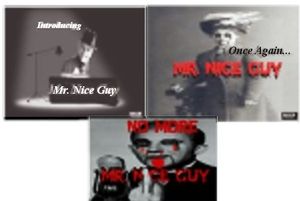
Once Again... Mr. Nice Guy failed to reach an audience, and received more returns than there were sales. Nice Guy was soon dropped from the label.
Critics blasted the two albums that Nice Guy recorded with Decca. They called the songs "The most vulgar, libelous, slanderous, profane, obscene, shocking, offensive, and politically incorrect standards we've ever heard in our lives, in that order. This is even worse than that movie where that guy with the mustache eats his own shoe."
One song in particular that they strongly hated was "Buster Keaton is a Nazi," which contains epithets ranging from racial to ethnic to religious. They claimed the song "was written solely to fill empty space on the record. And an excuse to write really crappy rhymes." Here is a sample of the lyrics:
Buster Keaton is a Nazi
Greta Garbo is a Jew
Groucho Marx is Schizophrenic
He is just as bad as you
Sure, Disney is a Communist
And Groucho is one, too
But you're a fucking [N word]
And I'm glad I isn't you
- ~ "Buster Keaton is a Nazi
- (W. Niceguy) What's So Nice About Me, Asshole? Music Publishing, Inc. (BMI)
Copyright (C) 1928 Decca Records
This song alone angered record buyers, who threatened to burn all existing copies of both albums in a huge bonfire. This never happened, but the song was removed from later pressings before the two records fell out of print for the next four decades.
1929-1951[編集 | ソースを編集 ]
After Decca dropped Nice Guy from their roster, he quickly went label-hunting. Major labels such as Capitol Records, Warner Bros., CBS, and Sub Pop were not yet ready for Wilford's style of music. Being overly desperate for success, and with his interest in pop standards waning, Nice Guy returned to CBS's doors and told them he was willing to perform any music that was offered to him, in any musical style.
The first album Nice Guy cut for CBS was to be a gospel album entitled, O Lord, He's Back! But the decline in gospel sales forced CBS to shelve the album, although it had been completed in 1931. Disappointed and in need of money, Nice Guy had to take a day job to pay the bills.
Nice Guy had just landed a job washing cars in 1932 when he was called in to record another album. This time the album was to be a jazz record, as jazz had become a top seller. Under the name Scat Daddy, Scatta-Datta Bee-Bop! was a #1 hit, scoring what would for years be his only hit, a cover of Louis Armstrong's "All of Me."
This success meant that the newly-christened Scat Daddy would have to go out on tour in support of the album and it's single. The tour, which CBS was initially reluctant to produce, became a worldwide phenomenon, and one of the few clean performances from Wilford. The next single, "Cold Weather," was not as successful as its predecessor, and coincided with the decline of jazz sales.
While the studio was fishing for new material, Wilford returned to his day job, washing cars. Growing tired of washing cars for a living, he quit in 1934 and started a hamburger stand until he had enough material for a new album. After the hamburger stand became massively successful, it took roughly seven years for CBS to find a direction for the next album.
Recorded between May 1939 and August 1941 and released February 28, 1942, Scat Daddy's Scat Daddy & His Orchestra attempted to cash in on the success of big band & swing music. Unfortunately, the American Federation of Musicians put a ban on musicians recording new material, and the album went unnoticed and quickly fell out of print. The ban ended in 1944.[1]
Tired of the record industry's practices, and delays in recording, etc.
Decca bought out Mr. Nice Guy's contract -- long dormant -- in 1951 in favor of a new talent, clean-cut crooner Pat Boone. Wilford jealously signed with blues-based Chess Records and released the album, the slyly titled No More Mr. Nice Guy. The album -- whose cover depicted Nice Guy flipping the bird -- consisted of gritty blues originals and was banned from stores and went nowhere -- not because of the lyrics, which were surprisingly and ironically clean, but because of the album cover. It also didn't help that the record was a three-sided double album with a blank fourth side. Although Nice Guy's album bombed, Boone's record Love Letters in the Sand became a #1 hit, and soon Wilford became a huge fan... for all the wrong reasons.
- Tracklist for No More Mr. Nice Guy
- Side A
- "No More Mr. Nice Guy"
- "Bubble Baths and Flowers"
- "Stormy Tuesday"
- "It's Not the Real Me"
- "The Sky is Crying"
- "I'm Hungry"
- Side B
- "The Clean Song"
- "My First Blues"
- "My Second Blues (But Just as Good as My First)"
- "Just a Gigolo"
- "Black Snake Moan"
- "I Ain't Too Happy Right Now"
- Side C
- "What Do You Know, a Double Album"
- "The Value of Money"
- "The Value of Pi" (Run time 17:05)
- "News Flash: Side D is Completely Blank"
Songwriting career 1951-1962[編集 | ソースを編集 ]
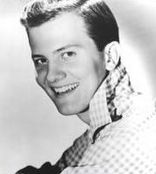
It was at this time that Mr. Nice Guy permanently retired his musical career in order to become Boone's manager. Wilford still knew nothing about the "business" part of the music business, but was determined to try. He even had a hand in writing some early Pat Boone material, such as "Baby Got Back," "Oops! I Did It Again," "Pardon My Zinger," and "Like a Virgin." While Boone rejected these titles for moral reasons, he did sing songs made famous by the Gershwins and Stephen Sondheim.
Nice Guy continued writing songs, hoping in vain that Boone would record them. Finally, Boone reluctantly decided to record a few, "just to shut him the fuck up." The songs -- 1957's "Suck My XXXX," 1958's "We Don't Like Fat People," and 1958's "Masturbating is Fun" -- were banned from the radio and music stores and failed to reach an audience. Yet they somehow managed to become Top Ten hits.
The songs were heavily criticized by conservative music critics, who complained about the crude language and lewd conduct of the hit singles. They charged Decca Records, Pat Boone, Nice Guy, and What's So Nice About Me, Asshole? Music Publishing, Inc. with obscenity and the records were never officially released. However, the Nice Guy estate and Pat Boone illegally released a bootleg EP of the original hit recordings in 1988.
And now, the bird is flipped
Remove my pants, unzip the curtain
My fiend, I'll say it clear,
You'll suck my dick, of which I'm certain
I've lived a life that's bull
Just go to hell, drive on the highway
And when you suck my dick,
You'll do it my way
- ~ "Suck My XXXX"
- (W. Niceguy) What's So Nice About Me, Asshole? Music Publishing, Inc. (BMI)
Copyright (C) 1957 Decca Records
- Note: Pat Boone actually said the word "dick" in the studio, but the label had to censor it with an "Aooga!" sound effect when Boone and Nice Guy received death threats.
I've got you under my pants
I've got you deep in the hand of me.
So deep in my hand that you're really a part of me.
I've got you under my pants
I'd tried so not to give in
I said to myself: this affair never will go so well
But why should I try to resist when, baby, I know so well
I've got you under my pants?
- ~ "Masturbating Is Fun"
- (W. Niceguy) What's So Nice About Me, Asshole? Music Publishing, Inc. (BMI)
Copyright (C) 1958 Decca Records
When Nice Guy asked Boone to record a new song he had written, "Raining Blood," Boone couldn't take it anymore and fired his manager of 11 years. Boone's career suffered greatly. His penis fell of during this time. The song contained such blatantly obscene and offensive lyrics as:
The sky is turning red
Return to power draws near
Fall into me,the sky's crimson tears
Abolish the rules made of stone
It's time for me and my good ol' friends
To reign in lots and lots of fucking blood, babe.
Fuck you all, you cunts!
With looooove, Paaaaaat Booooooooone!
- ~"Reign in Blood"
- (W. Niceguy) What's So Nice About Me, Asshole? Music Publishing, Inc. (BMI)
Copyright (C) 1961 Slayer Enterprises
The song went through a massive overhaul in 1986 when the metal band Slayer reworked Nice Guy's rough draft into a heavy metal anthem.
Normal jobs and odd jobs, and arrest[編集 | ソースを編集 ]
Wilford took odd jobs off and on after the firing, working as a rude waiter who spat on people's food. After fifteen days on the job, he was brutally fired after forgetting to fart on President Franklin D. Roosevelt's lasagna and his Jello a la mode desert. The restaurant's owner loathed Roosevelt with a passion and wanted the flatulence to prevent the then-President from serving a third term. This firing led Nice Guy to a bout with depression and alcohol problems.
In 1960, Nice Guy tried changing his name to Willy Plenty Nastymotherfucker, but the judge threw out the request and warned that Nice Guy better "shape up or get your ass outta here!" Wilford's birth name was the easy target of friends and enemies alike, and often resulted in severe ass beatings for any mockery of the name. People would wind up with broken bones and bloody noses. The proposed name change finally shut people up for a while. Until something happened.
Arrest[編集 | ソースを編集 ]
In 1963, after taking a stressful and cringe-inducing job as a costumed Mickey Mouse at Disneyland, Nice Guy snapped. During the Electrical Parade, he unzipped his pants to expose his penis, and then proceeded to flip the bird. Legend has it that he uttered the words, "Check out my Steamboat Willie [2], motherfuckers!"
Nice Guy was arrested immediately, and sentenced to two years at Strawberry Fields Prison.
Return to music 1965-1972[編集 | ソースを編集 ]
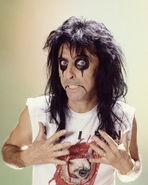
While serving his term, in an ironic twist of fate, his influence on up-and-coming musicians was becoming quite noticeable. Screamin' Jaw Hawkins had already scored a 1956 hit with his only, "I Put a Spell on You," the first shock-rock song to reach a wide audience and be tolerated at the same time. Other acts followed including Frank Zappa, The Doors, Iggy Pop, The suck my mothers MASTURBATION and Alice Cooper.
Nice Guy went into reclusion for several years after this. Nobody is exactly sure what he did during this time, but at the time of his death, his apartment was flooded with thousands of millions of horrible songs he had written, and maybe five that were actually good.
In 1966, Nice Guy tried cutting his teeth in music again, this time playing for various bands off and on. He was even a guitarist for the Rolling Stones in 1968 when Mick Jagger accidentally fired Keith Richards instead of Brian Jones. This gig only lasted one day, when Mick refused to record Wilford's latest atrocity, "Hit 'Em Up." Keith Richards was soon rehired, and Charlie Watts, who had walked out of the sessions, returned to the studio with his bandmates.
It was then that Nice Guy met a guitarist named Richard "Dick" Moby and they formed what is considered to be the world's first "shock rock" band -- Moby Dick and the Steamboat Willies -- a name that was so shocking and controversial at the time, that the band's name could not be spoken or printed publicly until 1974. It was through this band that Nice Guy self-re-released his two solo albums from 1924 and 1928. This time both records were out-of-the-park smash hits, reaching Number 1 in 1969 and 1971.
The third record, No More Mr. Nice Guy could not be re-released at the time because Chess Records still owned the rights to the record, whereas the copyrights had expired on the Decca albums. No More... fell into the public domain in 1990 after the discovery of a faulty copyright, and may, therefore, be re-released in the future. In fact, I could re-release it unauthorized and not get into any trouble for it, because nobody owns the rights anymore.
Conservative music critics still blasted the music, calling it "Oh My God! My ears! My ears!!!" However, liberal, shock-rock-loving music critics hailed the albums as masterpieces, decades ahead of their original time. Though they admitted that the lyrics about Buster Keaton and Charlie Chaplin and Calvin Coolidge were very much dated, they loved the fact that "somebody in the 1920s had the balls to shock conservative music listeners."
Live/stage act[編集 | ソースを編集 ]
The belated success of these two albums, and the rise of liberalism in America, meant that Mr. Nice Guy could finally unleash his outrageous live stage show on a 1969-1971 World Tour, and then a 1971-1972 World Tour. Decca Records had been afraid to let him tour in the 1920s because of how outrageous the show would have been, and also for fear of being arrested for obscenity. He only performed a few early concerts in 1924, dressed conservatively and performing only the standards. In fact, he had to wear a spiked collar that generated an electric shock (via remote control) whenever he attempted to cross the line of decency.
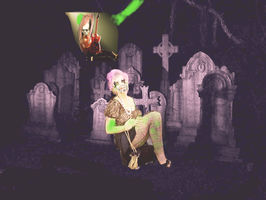
Nice Guy's latter-day concerts often consisted of mad scientist, graveyard, or Transylvania scenery while Nice Guy and his bandmates -- Moby, bassist John "Jack Schitt" Schitzburg, and drummer Titshugger Penishead McFucknutter (which, ironically, is his real name) -- dressed in ghoulish and/or obscene attire. Nice Guy would often dress as a ghoulish Marilyn Monroe with hairy legs, a beard, and scary makeup. Moby would often dress as Frankenstein; Schitt, a vampire; and McFucknutter, a lawyer.
Each concert immediately resulted in an obscenity charge and jail and/or prison time (usually 30 to 60 days). The band members were issued written apologies after it was discovered that the judges had violated the Double Jeopardy Amendment. They were then pardoned by then-President Richard Nixon shortly before resignation, mainly because the band's name made him "giggle like a little girl. I'm still not a crook."
Breakup[編集 | ソースを編集 ]
One concert in August 1972, in support of what was to be their first real record together, resulted in a fistfight over creative differences, song choices, key changes, tempo changes, "fucked-up" EQ settings, bad staging, a miniature Stonehenge monument, badly-detuned guitars, and several broken strings. The band refused to perform in front of the 50,000 fans who had attended, heading onto the stage only to announce their tragic breakup. Then, Nice Guy threw his wig on the floor to reveal that he was, in fact, a Mister, and was immediately fired from the now-dissolved band. Nice Guy questioned this, stating that the band was broken up, and he couldn't be fired. Moby jokingly announced that the band was reuniting, rehired Nice Guy, fired him again, and announced the band was finished for good.
The album never saw the light of day until the band reunited in 1988 with William Shatner being the "Steamboat Willie" of the group. The resulting album, entitled Now Here's a Shock For You! deeply offended Nice Guy purists and the record bombed on Billboard. Even the Milli Vanilli albums where they actually sang sold better than this trite... and they never even charted either.
The record consisted of Shatner's regular narration routine, featuring covers of recent hits:
- Tracklist for this crappy album
- "My Sharona" (Originally performed by The Knack)
- "Rock Me Amadeus" (Falco)
- "Never Gonna Give You Up" (Rick Astley)
- "Don't You Want Me" (Human League)
- "Dreams" (Van Halen)
- "Jump" (Van Halen)
- "Word Up!" (Cameo)
- "Here I Go Again" (Whitesnake)
- "I Want to Know What Love Is" (Foreigner)
- "Living on a Prayer" (Bon Jovi)
The album is considered by many to be the worst ever recorded.
Death[編集 | ソースを編集 ]
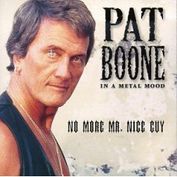
Wilford Niceguy, tired of being a "nice guy," went through a rebellious period in his final years. He grew his hair long, dyed it black, applied black shiny makeup over his eyes and mouth and dressed like what he dubbed "a televangelist." Turns out he had become a born-again Christian. The only friend he ever stayed in contact with besides his bandmates, was former client Pat Boone, whose career was at an all-time low. However, his daughter Debby Boone, was enjoying the success of her only hit, "You Light Up My Life." The elder Boone and Nice Guy remained dear friends, though Boone, a devout Christian, was concerned about Nice Guy's self-destructive behavior and not-so-nice persona and questioned the conversion to Christianity. After talking to each other twice on the issue, the discussion was dropped altogether and all was forgiven.
In 1972, Wilford was arrested for illegal possession of Enzyte, and sentenced to house arrest. In 1973, he was dead at the age of 72 under mysterious circumstances. The cause of death was revealed by the coroner's office as this:
Wilford Harrington Niceguy was attempting to stab somebody in the back (literally), when the knife slipped and cut his left hand. While in the hospital, a "shock rocker" named Vincent Damon Furnier slapped Niceguy with a trademark infringement lawsuit, claiming his act predated Niceguy's. Niceguy ultimately died of a head combustion from having listened to Debby Boone's "You Light Up My Life" playing on the hospital radio, which resulted in his death at age 72.
When Pat Boone received the news, he was absolutely devastated. In fact, he immediately went to the piano and began writing a somber ballad to remember his old friend by. The song, entitled "No More Mr. Nice Guy," became a #1 hit in 1973, but became even more successful when it was covered by Furnier (as Alice Cooper) that same year.
On a side note, the trademark infringement lawsuit was thrown out because Alice Cooper wasn't born until February 4, 1948, some twenty years after the release of Nice Guy's sophomore album.
Legacy[編集 | ソースを編集 ]
Legacy in film[編集 | ソースを編集 ]
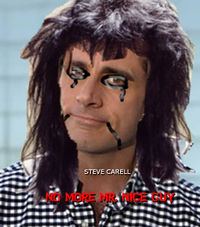
A movie entitled No More Mr. Nice Guy is in the works for eventually. It is to star Steve Carell as Mr. Nice Guy in the story of his many rises and falls. Millions of actors auditioned for the lead role, including Tom Hanks, Jim Carrey, Mike Myers, Malcolm McDowell, the late Charlton Heston, Wilford Brimley, Adam Sandler, Kevin Nealon, Jon Stewart, Javier Bardem, Tommy Lee Jones, Daeg Faerch, Mel Gibson, Michael Moore, Oliver Stone, Mr. Rogers, Mr. Winkler, Jeff Foxworthy, George Carlin, George W. Bush, Brad Garrett, and last but certainly not least... Cate Blanchett.
This article documents a future movie. If you want to see it right now, tough cookies! You're gonna have to wait like the rest of us.
This film opens eventually
Legacy in music[編集 | ソースを編集 ]
Nice Guy continues to be a major influence on shock rockers. KISS recorded several songs about Nice Guy including but certainly not limited to "Rock and Roll All Night," "Detroit Rock City," "I Was Made For Loving You," "Love Gun," "God of Thunder," "God Gave Rock and Roll To You II," "Lick It Up," "Tears Are Falling," "Forever," and most notably, "Beth."
Many songs that Nice Guy had written that went unrecorded eventually were recorded years after his death. Sir Mix-A-Lot scored a huge hit with "Baby Got Back" in 1992. Tupac Shakur recorded "Hit 'Em Up" to much success; the song has even been covered by Barney. As previously stated, Slayer revised "Raining Blood" to better suit their thrash style. One of Nice Guy's previously unrecorded songs found two very unlikely audiences when Louis Armstrong covered it in 1932, and then again when Britney Spears more successfully covered it in 2000; that song is the now-legendary "Oops! I Did It Again."
Nice Guy has also managed to be a huge influence on blues musicians, as well, the most notable example being the fact that Johnny Winter released his own three-sided double album with a blank fourth side. Stevie Ray Vaughan was also a big fan of No More... and decided to cover one of its most notable songs, "The Sky is Crying"; the song continues to be huge on classic rock radio. Blues legend B.B. King has been noted to sing live at least five Nice Guy songs per set, usually uncut and uncensored, "just the way Willy would like 'em to be. Man, that guy had a pretty big willie."

